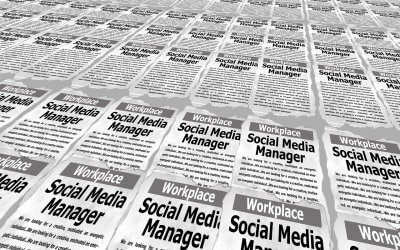Discover how to enhance decision-making in your organization by focusing on three crucial areas: solving the right problem, gathering all the available information, and understanding the intent. Learn to empower your team, foster a purpose-driven culture, and improve organizational clarity for better decision-making.

Greta Thunberg, is She Relevant? Yes, and Why You Should Follow Her
Who is She
For those who are unaware of Greta Thunberg, she is a 16-year-old Swedish student credited with raising global awareness of the risks posed by climate change, and holding politicians to account for their lack of action.
A year ago, Greta took time off school to demonstrate outside the Swedish parliament calling for bold climate action. Following Thunberg address to the 2018 United Nations Climate Change Conference, on 24 November 2018, she spoke at TEDxStockholm. Also, Greta attended the World Economic Forum in Davos in January 2019.
The media attention her “school strike for the climate” attracted, resulted in other students undertaking similar protests in their communities. Together Thurberg and these different communities have organized a school climate strike movement. The first student strike was held 15 March 2019 and was the most significant climate strike in history with 1.6 million students in over 125 countries. Every week since, student strikes take place somewhere in the world. In 2019 two of the pupil climate strikes have involved over one million pupils. In Germany, the protest is under the name Fridays for Future.
Greta has argued that students should not attend school and study for a future that may never come. Thunberg observes that politicians, most of whom are over 50 years old, decide students’ futures which they will not experience. “If I turn 100, I will still be alive in 2103. Most of the climate targets are set for the time until 2050. With a little luck, I haven’t even lived half my life“.
Thunberg is not only protesting but is adjusting her life to her cause. Thunberg has persuaded her parents to adopt lifestyle choices to reduce their carbon footprint, i.e., forgoing air travel and meat. This fall, Thunberg is attending the UN Climate Action Summit in New York, and the COP 25 Climate Change conference in Santiago, Chile. Following her avoidance of air travel and limiting her carbon footprint, Thunberg traveled from the UK to New York in a 60ft racing yacht equipped with solar panels and underwater turbines.
Her Message
When, at age 15, Thunberg began her protests, she had two simple messages:
- A sign stating “school strike for the climate”; and
- Leaflets which said: “I am doing this because you adults are shitting on my future.”
Since then, her message has evolved into four interwoven themes.
- The global warming crisis is so severe that humanity is facing an existential crisis, “that will most likely lead to the end of our civilization as we know it.”
- Thunberg holds the current generation of adults responsible, saying, “You are stealing our future,” and she is especially concerned about the impact of the climate crisis on her generation. To the UK Parliament she said, “You lied to us. You gave us false hope. You told us that the future was something to look forward to.”
- We should all be panicking because nothing is being done to solve the problem. Change is required now!
- Politicians and decision-makers need to listen to the scientists because “according to the IPCC (Intergovernmental Panel on Climate Change), we are less than 12 years away from not being able to undo our mistakes.”
With her Asperger’s, Thunberg speaks bluntly to business and political leaders deriding them for their lack of action. At Davos, she told a panel, “Some people, some companies, some decision-makers, in particular, have known exactly what priceless values they have been sacrificing to continue making unimaginable amounts of money. I think many of you here today belong to that group of people.” She added, “I want you to act as if the house was on fire — because it is“. In London, in October 2018, she said, “We’re facing an immediate unprecedented crisis that has never been treated as a crisis, and our leaders are all acting like children.”
She also points out that various governments’ strategies as part of the Paris Agreement to limit global warming to 1.5C are insufficient. In addition, she has stated that the greenhouse gas emissions curve no later than 2020 needs to start declining steeply. She told the UK Parliament at the beginning of 2019 that Britain needs not to ‘lower’ emissions but think of eliminating them. In February 2019, she said that by 2030, the EU must reduce their CO<sub>2</sub> emissions by 80%, double the 40% goal set in Paris.
While, Thunberg acknowledges that she is not a climate scientist, but merely repeating what scientists have told the the public for decades, albeit, without much success. Thunberg says if everyone listened to the scientists and acknowledged the facts, “then we (students) could all go back to school.” On arriving in New York, she admonished Donald Trump to “listen to the science.”
Her Impact
In May 2019, Time magazine featured Thunberg on its cover, naming her a “next-generation leader” and noted that many young people see her as a role model. A 30-minute documentary titled Make the World Greta Again is on Thunberg and the school strike movement. Her impact on the world stage is called the “Greta Thunberg effect.”
Her impact on the world stage is called the “Greta Thunberg effect.”
In response, some politicians, mostly in Europe, have acknowledged the need to focus on climate change. A British YouGov poll, in June 2019, found that public concern about the environment had soared to record levels since Thunberg and Extinction Rebellion had ‘pierced the bubble of denial.‘
Reports in August 2019, stated that the number of children’s’ books addressing the climate crisis published, and sold, have effectively doubled. All these books aimed at empowering young people to save the planet. The “Greta Thunberg effect is attributed for this increase in publication and sales.
Inspired by Thunberg, US wealthy philanthropists and investors have donated over $0.5MM to the Extinction Rebellion, and school strike groups establishing the Climate Emergency Fund.
In February 2019, with Thunberg sharing the stage, Jean-Claude Juncker, then President of the European Commission, said “In the next financial period from 2021 to 2027, every fourth euro spent within the EU budget will go towards action to mitigate climate change“.
As a result of climate issues, in the May 2019 European elections, Green parties nearly doubled their vote to finish second on 21%, boosting their MEP numbers to a projected. The northern European countries where responsible for many of the gains where young people have taken to the streets inspired by Thunberg.
In June 2019, Swedish Railways (SJ) reported an 8% rise number of Swedes taking the train for domestic journeys over the previous year. This rise in ridership reflects growing public concern about the impact of flying on CO<SUB>2</SUB> emissions. Thunberg has highlighted the effect of air travel on CO<SUB>2</SUB> emissions by refusing to fly to international conferences. Being embarrassed or ashamed to take a plane because of its environmental impact has been described on social media as ‘Flygskam’ or ‘Shame of flying,’ along with the hashtag #jagstannarpåmarken, which translates as #istayontheground.
The Criticism
While there is worldwide support for Thunberg, there is also a great deal of criticism, primarily from the right and conservative groups. While many of these critics are Baby Boomers, who grew up during the Vietnam War movements, they seem unable to accept protests by a younger generation.
The most vociferous attacks on Ms. Thunberg have come from far-right politicians and conservative writers. Having read many comments from articles about her in the US, the primary responses I see are:
-
Go back to Europe
-
Her parents should have disciplined her more
-
Too naïve to understand anything
-
Climate change is a hoax
-
If there is climate change deal with Asia first
-
She is mentally unstable
-
She should die/be killed
-
Knows nothing, so how dare she lecture us.
-
She is a Fascist, Communist, Liberal ****, or spoiled little girl.
Unfortunately, since she is reporting what the scientific community says most critics have “launched personal attacks,” “bash (her) autism,” and “increasingly rely on ad hominem attacks to blunt her influence.” As Thunberg’s influence grows, more columnists have been making “ugly personal attacks” on her, and Germany’s Alternative for Germany party has attacked her “in fairly vicious ways.”
The New York Times journalist, Christopher Caldwell, claims that Thunberg’s simplistic to climate change will reveal climate protesters to the complexities of decision-making in western democracies. French philosopher, Raphaël Enthoven, argues that many people “buy virtue” with their support for Thunberg but don’t do anything to help. In July 2019, Mohammed Barkindo, OPEC secretary-general, “complained of what he called ‘unscientific’ attacks on the oil industry by climate change campaigners, calling them ‘perhaps the greatest threat to our industry going forward.'” Later he said he was referring to the recent wave of school strikes inspired by Greta. Andrew Bolt, a right-wing Australian journalist, questioned the validity of ThunbergÆs activism based on her Asperger’s. He wrote “I have never seen a girl so young and with so many mental disorders treated by so many adults as a guru… Her intense fear of the climate is not surprising from someone with disorders which intensify fears.” Also, Brendan O’Neill, the editor of the Koch-backed internet magazine Spiked, described Thunberg as a “millenarian weirdo” whose “cultish” movement is fundamentally “against people.”
Thunberg is relatively unknown in the US, and how the US will handle her arrival is uncertain. “It will be interesting to see whether there is any paid-for anti-Greta advocacy,” Richard Black, said, pointing to the funding for anti-climate action lobbying in the US. “There will be one tranche that absolutely does not welcome her.” The US remains the largest climate denial country in the West, primarily due to hundreds of millions of dollars spent on lobbying and paid media by climate deniers like Koch Industries.
Two of the reasons given above I would like to mention, the cost of dealing with climate change is too high. However, cost of the 9/11 attacks, which resulted in 4,000 dead and damage in downtown Manhattan is estimated at $3.3 trillion and rising. GIven that Maria killed 4,000+ in Puerto Rico and the cost of Hurricane Sandy was estimated at $65bn, I don’t think we can keep ignoring these costs with the claim that prevention is too expensive. I think the price of climate change denial is far higher, and prevention would be more cost-effective than cure. The second is to look at Asia first; however, while China is currently the largest emitter of CO<SUB>2</SUB>, the following shows the roles of all countries since 1750.
The people who hate her do so because she looks and acts like the sort person they believe is not supposed to speak and tell them to do things they don’t want to. Instead, they see children mainly as symbols of a protected innocence that can be passively invoked to justify whatever they choose, not as harbingers of a better world.
However, the misogynistic nature of the criticism towards Greta reminds me of the Taliban and religious conservatives’ attacks on Malala Yousafzai for wanting girls to have an education. I believe that these critics are trying to stop change and tilting at windmills to put the world back to some time when they had the control and more power.
Is She Relevant?
I would argue the following:
Climate change is here, and even if you don’t accept that humans are the cause, you need to plan for it, adapt and protect your business. Your strategy and plans need to consider the risks and impacts of climate change on your customer base, operations, supply chain, revenue sources, costs, and ability to deliver products and services. McKinsey identified the following risks:
Value Chain Risks
- Physical
- Price
- Product
External Shareholder Risks
- Ratings
- Regulation
- Reputation
Customers. Research by Cone Communications, a consumer brand PR agency, found that 87% of Americans said they would purchase a product because of a company’s alignment on an issue about which they care.
Hiring. Nearly two-thirds of millennials said they take a company’s social and environmental commitments into account when weighing a job offer. This generation makes up the majority of the labor force now, and will make up half of all US employees by 2020,
Your kids care, they expect you too.
Most Americans are worried about it, and especially millennials and generation Z, emphasizing the age gap in concern. So lead!
Many major companies are starting to try to fight climate change:
- To help conserve the planet, Patagonia has pledged to donate 1% of its sales to climate change. Also, earlier this year, Patagonia stopped selling its apparel to companies that don’t align with its environmental values, including multiple large banks and Fintech startups.
- IKEA. IKEA intends to remove all single-use plastic from its global home furnishing range by next year, and use only renewable or recycled materials in all its products by 2030. Their goals are here.
- Unilever is seeking, by 2025, to replace all of its plastic packagings with reusable, recyclable, or compostable materials.
- Tesla CEO Elon Musk has stressed the importance of speeding up the “advent of cars powered by electricity made from solar power,” like those from his company.
Why You Should Follow Her
There is the old saying, “Generals always fight the last war?” I think CEOs do too, even those who have read What Got You Here Won’t Get You There. Many CEOs are not familiar with many of the top social influencers and what they are doing in the market. Some of these, like Yuya and Jenna Marbles, have considerable influence on their audience and lead them where no one is expecting. While you cannot get ahead of these people, you should not get too far behind. Even if you don’t sell to them directly, they are influencing many. Climate change is an essential issue with the younger generation, your future clients. You need to understand their concerns when connecting with them.
Conclusion
While you may not agree with Greta’s views, a 16-year-old that has gotten millions of students to protest and has over 1.3MM followers on Twitter and 3.0MM followers on Instagram is an impressive force. Her YouTube video of her speech to the UN has had over 1MM views. Furthermore, someone who not only protests but is changing her life to live her message increases the strength of her message. So, if you don’t like her, I would ask, “When was the last time you believed in something so much you are willing to do something about it on a public stage, take on the major political and corporate interests, and that could cost you everything?” As Kirk Lippold said, “Integrity is doing the ethical thing regardless of the consequences.”
For a great piece on climate change, I would recommend Neil Kakkar’s article, A Guide to Climate Change
© 2019 Marc Borrelli All Rights Reserved
Recent Posts
Boosting Common Sense Decision-Making in Your Organization
Do You Understand Your Costs to Ensure Profitability?
You can only determine profitability when you know your costs. I’ve discussed before that you should price according to value, not hours. However, you still need to know your costs to understand the minimum pricing and how it is performing. Do you consider each jobs’ profitability when you price new jobs? Do you know what you should be charging to ensure you hit your profit targets? These discussions about a company’s profitability, and what measure drives profit, are critical for your organization.
Sunk Costs Are Just That, Sunk!
If you were starting your business today, what would you do differently? This thought-provoking question is a valuable exercise, especially when it brings up the idea of “sunk costs” and how they limit us. A sunk cost is a payment or investment that has already been made. Since it is unrecoverable no matter what, a sunk cost shouldn’t be factored into any future decisions. However, we’re all familiar with the sunk cost fallacy: behavior driven by a past expenditure that isn’t recoupable, regardless of future actions.
Do You REALLY Know Your Business Model?
Bringing clarity to your organization is a common theme on The Disruption! blog. Defining your business model is a worthwhile exercise for any leadership team. But how do you even begin to bring clarity into your operations? If you’re looking for a place to start, Josh Kaufman’s “Five Parts of Every Business” offers an excellent framework. Kaufman defines five parts of every business model that all flow into the next, breaking it down into Value Creation, Marketing, Sales, Value Delivery, and Finance.
Ideation! Harder Than It Sounds
Bringing in new ideas, thoughts, understanding, and logic is key as your organization faces the challenges of a changing environment. But when you do an ideation session in your organization… how does it go? For so many organizations, many times, after a few ideas have been thrown out and rejected, the thought process slows down very quickly, and a form of hopelessness takes over. How does your organization have better ideation? I’ve come across a new approach with a few teams lately.
Recruit, Recruit, Recruit!
An uptick in business has begun this quarter, and companies are rushing to hire to meet this surge in demand. What amazes me is how many are so unprepared to hire. Continual recruiting is key to the survival of a company. It isn’t the same thing as hiring—continuous recruiting is building a pipeline of people that you would hire if you needed to fill a position, or “A players” you would hire if they were available.
We All Need Clarity
If your organization is focused on obscurity over clarity, whether intentionally or not, your “A” player employees are vulnerable. There is a looming talent crunch. As we start to emerge from COVID, demand is increasing, and many are scrambling to fill positions to meet that demand. Headhunters and recruiters are soon going to be calling your key “A” employees. Have you been giving them a reason to stay?
Not Another **** Meeting
As Leonard Bernstein put it so well, “To achieve great things, two things are needed: a plan and not quite enough time.” Your meetings can be shorter, more fruitful, and engaging, with better outcomes for the organization, employees, and managers. It’s time to examine your meeting rhythms and how you set meeting agendas. This week, I break down daily, weekly, monthly, quarterly, annual, and individual meeting rhythms, with sample agendas for each.
Is Your Company Scalable?
Let’s start here: Why should your company be scalable at all? If your business is scalable, you have business freedom–freedom with time, money, and options. Many business leaders get stuck in the “owner’s trap”, where you need to do everything yourself. Sound familiar? If you want a scalable business that gives you freedom, you need to be intentional about what you sell, and how.
Are you ready for the Talent Crunch?
Companies are gearing up to hire. Unfortunately, many are competing within the same talent pool. Some experts are currently predicting a strong economic recovery starting in May or June. But as the economy booms, there is going to be fierce competition for talent. How will you fare in the looming talent crisis? Your organization should be creating a plan, now, so you can attract the talent you need in the year ahead.










